Filter by
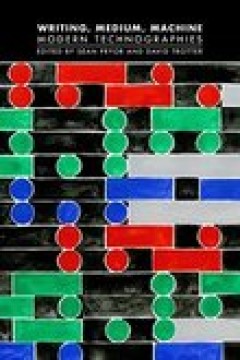
Writing, Medium, Machine: Modern Technographies
Writing, Medium, Machine: Modern Technographies is a collection of thirteen essays by leading scholars which explores the mutual determination of forms of writing and forms of technology in modern literature. The essays unfold from a variety of historical and theoretical perspectives the proposition that literature is not less but more mechanical than other forms of writing: a transfigurative i…
- Edition
- -
- ISBN/ISSN
- 9781785420184
- Collation
- 223 p.
- Series Title
- -
- Call Number
- 809.933558 TRO w
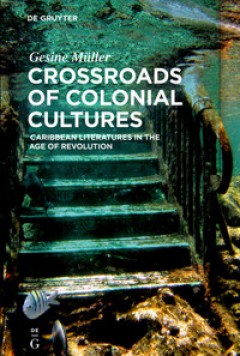
Crossroads of Colonial Cultures : Caribbean Literatures in the Age of Revolution
The examination of literary and cultural transfer processes in the colonial Caribbean allows completely new insights into the early processes of cultural globalisation. Racist discourses, established models of white abolitionists, politics of remembrance and the hitherto neglected role of the Haitian Revolution combine to an amalgam that questions our established concept of a genuine western mo…
- Edition
- -
- ISBN/ISSN
- 9783110495416
- Collation
- VIII, 359 p.
- Series Title
- -
- Call Number
- 840.99729 MUL c
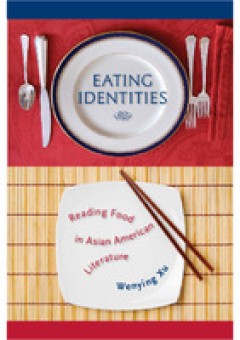
Eating identities
'Eating Identities' is the first book to link food to a wide range of Asian American concerns such as race and sexuality. Xu provides lucid and informed interpretations of seven Asian American writers (John Okada, Joy Kogawa, Frank Chin, Li-Young Lee, David Wong Louie, Mei Ng, and Monique Truong), revealing how cooking, eating, and food fashion Asian American identities in terms of race/ethnici…
- Edition
- -
- ISBN/ISSN
- 9780824878436
- Collation
- ix, 187p.
- Series Title
- -
- Call Number
- 810.9355 XU e
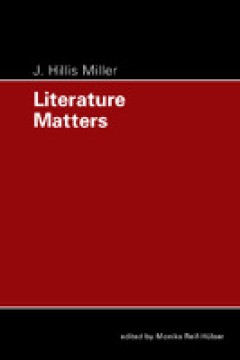
Literature Matters
This new collection of J. Hillis Miller’s essays centres on the question “why and to what end should we read, teach, and spend our time with literary and/or cultural studies?” At a time when electronic media seem to dominate the market completely, and jobs follow the money flows into electronic and technical fields, literary and cultural studies might appear as a decorative addenda but no…
- Edition
- -
- ISBN/ISSN
- 9781785420351
- Collation
- 171 p.
- Series Title
- -
- Call Number
- 801.3 HIL l
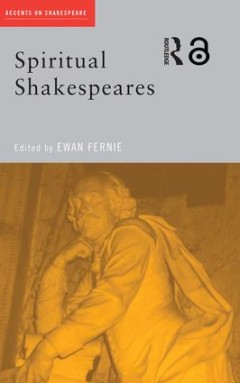
Spiritual Shakespeares
Spiritual Shakespeares is the first book to explore the scope for reading Shakespeare spiritually in the light of contemporary theory and current world events. Ewan Fernie has brought together an exciting cast of critics in order to respond to the ‘religious turn’ in recent literary theory and to the spiritualized politics of terrorism and the ‘War on Terror’. Exploring a genuinely n…
- Edition
- -
- ISBN/ISSN
- 9780203625491
- Collation
- xix, 241p. : ill.
- Series Title
- -
- Call Number
- 822.33 SPI s
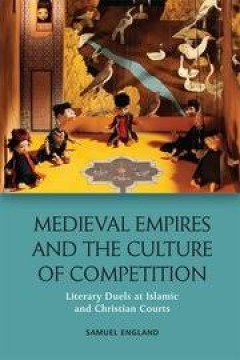
Medieval empires and the culture of competition: literary duels at Islamic an…
Shows how the interactive, confrontational practice of courtly arts shaped imperial thought in the Middle AgesA probing inquiry into medieval court struggles, this book shows the relationship between intellectual conflict and the geopolitics of empire. It examines the Persian Buyids’ takeover of the great Arab caliphate in Iraq, the counter-Crusade under Saladin, and the literature of soverei…
- Edition
- -
- ISBN/ISSN
- 9781474425223
- Collation
- viii, 230 pages ; 25 cm
- Series Title
- -
- Call Number
- 909.07 ENG m
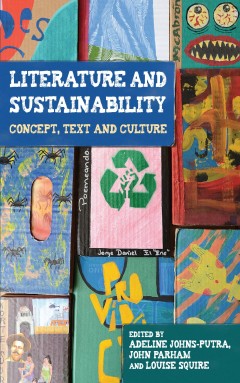
Literature and sustainability : concept, text and culture
Sustainability has become a key socio-political issue over recent years. However, whilst the literary-critical community has advanced enthusiastically on an exciting range of environmentally-based analyses (most obviously through the work of ecocriticism), its response specifically to sustainability—as an attempt to reconceptualise the way we live, as an idea with a particular history, and as…
- Edition
- -
- ISBN/ISSN
- 9781526107633
- Collation
- xvii, 253p. : ill
- Series Title
- -
- Call Number
- 823.0093553 LIT l
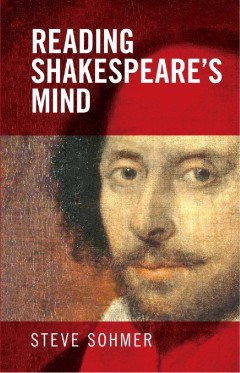
Reading Shakespeare's mind
This book shows that William Shakespeare was a more personal writer than any of his innumerable commentators have realised. It asserts that numerous characters and events were drawn from the author's life, and puts faces to the names of Jaques, Touchstone, Feste, Jessica, the 'Dark Lady' and others. Steven Sohmer explores aspects of Shakespeare's plays and sonnets that have been hitherto overlo…
- Edition
- -
- ISBN/ISSN
- 9781526113276
- Collation
- xii, 212p. : ill.
- Series Title
- -
- Call Number
- 822.33 SOH r

Disabled bodies in early modern Spanish literature: prostitutes, aging women …
Encarnacion Juarez-Almendros.
- Edition
- -
- ISBN/ISSN
- 9781786940780
- Collation
- viii, 201 pages ; 24 cm.
- Series Title
- -
- Call Number
- -
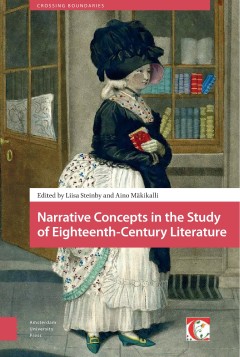
Narrative concepts in the study of eighteenth-century literature
This collection of essays studies the encounter between allegedly ahistorical concepts of narratology and eighteenth-century literature. It questions whether the general concepts of narratology are as such applicable to historically specific fields, or whether they need further specification. Furthermore, at issue is the question whether the theoretical concepts actually are, despite their appe…
- Edition
- -
- ISBN/ISSN
- 9789048527380
- Collation
- 314p. : ill.
- Series Title
- -
- Call Number
- 820.9005 NAR n
 Computer Science, Information & General Works
Computer Science, Information & General Works  Philosophy & Psychology
Philosophy & Psychology  Religion
Religion  Social Sciences
Social Sciences  Language
Language  Pure Science
Pure Science  Applied Sciences
Applied Sciences  Art & Recreation
Art & Recreation  Literature
Literature  History & Geography
History & Geography